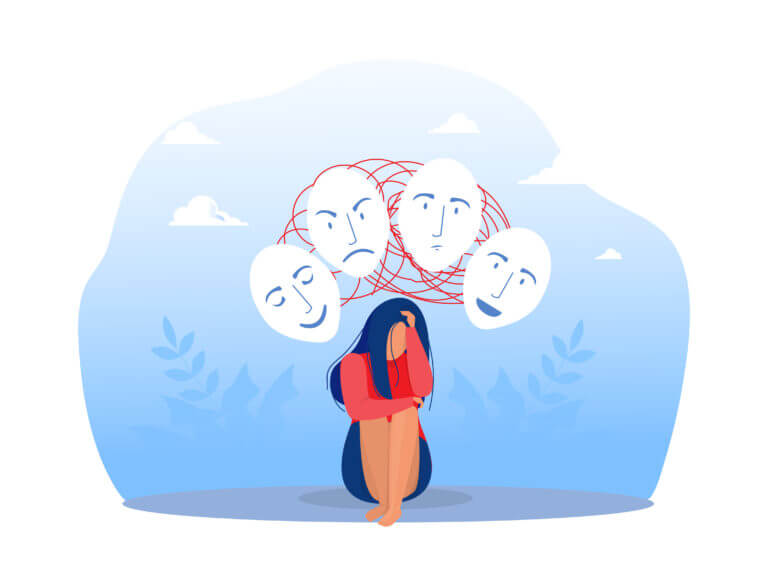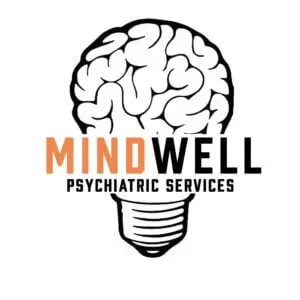Getting Better: How Support Changes Lives for People with Personality Disorders
Handling personality disorders might seem hard, but there’s good news. Mindwell Psychiatric Services can help you or someone you know feel better. With the right support, like talking to someone who understands and sometimes taking medicine, getting better is possible.
This guide will help you learn more about personality disorders with Mindwell Psychiatric Services’ support. So, it’s for anyone who finds these challenges tough or knows someone who does. We’ll look at what these disorders are, how to spot them, and how to get help. Asking for help is a big step towards a happier life.
What are Personality Disorders?
Personality disorders happen when someone’s way of thinking, feeling, and acting makes life difficult. These ways are very stuck and go on for a long time. Therefore, they can make it hard to make friends, do well at work, or feel happy.
In addition, everyone’s brain has its own set of rules for seeing the world and dealing with life. But with personality disorders, some of these rules make fitting in or feeling good hard. For example, someone might find it hard to trust others. Alternatively, they might act without thinking ahead.
There are different types of personality disorders. Some make people very cautious or feel apart from others. So, some lead to big, unexpected actions. And some make people very worried or scared of change.
It’s key to know that no one chooses to have these issues. Also, they start from a mix of family history, tough experiences, and other factors. Learning about personality disorders and seeking help can really help. It can make life happier and more complete.
Things to Know about Personality Disorders
Pretty Common
Around 1 in 10 people might have one. It’s something a lot of people face.
Different Kinds
There are 10 types of these disorders. So, they’re put into three groups based on how they affect people.
More Than Just Moods
These aren’t just about being grumpy. After that, they’re serious conditions that make everyday things hard.
Often Come with Other Problems
Many times, people with these disorders also feel super sad or very worried.
Not Anyone's Fault
They happen because of a mix of things, like family history, tough times in life, and other reasons. No one is to blame.
Getting Help Works
Talking to someone who understands, sometimes taking Medication prescription and management in Las Vegas, NV and having support can make a big difference.
Sooner is Better
Getting help early can really help and stop bigger problems later.
Understanding the Roots: What Causes Personality Disorders
Personality disorders can come from a few different things. For instance, here’s a simple way to understand them:
- Family: If someone in your family has a personality disorder, it might be more likely that you could have one too.
- Hard Times: Going through tough stuff, especially when you’re young, like feeling left out, having family problems, or being picked on, can really impact you.
- Your Brain Is Unique: Everyone’s brain works a little differently. For some people, the way their brain deals with emotions and stress can lead to a personality disorder.
- Feeling Lonely: Not feeling connected to people, even from a very young age, can make it more likely to have these kinds of challenges.
- Other Mental Health Problems: If you’re already feeling really sad (depression), very worried (anxiety), or using drugs or alcohol a lot, you might have a higher chance of getting a personality disorder.
These disorders don’t come from just one reason. So, they’re usually caused by a mix of things like your family background, things you’ve gone through, and how you relate to others. Understanding these can help find the best way to get better.
Types of Personality Disorder
Generally, personality disorders are grouped into three main types based on similar characteristics. Below is a simple breakdown:
Type A - The Odd or Eccentric Group
- Paranoid: People might be very suspicious and think others are out to get them.
- Schizoid: Individuals often prefer being alone and might not want close relationships.
- Schizotypal: People might have unusual beliefs or behaviors and feel uncomfortable in social situations.
Type B - The Dramatic, Emotional, or Erratic Group
- Antisocial: Individuals might not care about others’ feelings and might break rules or laws.
- Borderline: People have very intense emotions, might fear being alone, and can have rocky relationships.
- Histrionic: Individuals often seek a lot of attention and might be very dramatic in how they express emotions.
- Narcissistic: People might think they are more important than others and lack empathy for others’ feelings.
Type C - The Anxious or Fearful Group
- Avoidant: Individuals might be very shy, fear being embarrassed, and avoid social situations.
- Dependent: People might feel like they need others to take care of them and fear having to do things on their own.
- Obsessive-Compulsive Personality Disorder (OCPD): This is different from OCD. Also, people might be very focused on order, perfection, and control to the point where it’s hard to relax and be flexible.
Remember, having traits from these categories doesn’t always mean someone has a personality disorder. So, psychiatrists in Las Vegas can help figure out if someone’s traits are part of a disorder and how to help them.
Spotting Personality Disorders: Key Signs and How to Get Help
Essentially, personality disorders are when people think, feel, and act in ways that are very different from what most people expect. As a result, it can make life hard for them.
Below are signs that might show someone has this problem:
Trouble with Friends and Family
An individual might find it hard to make and keep friends or get along with family. Above all, trusting others and feeling close can be tough, leading to fights or feeling alone.
Confused About Who They Are
Might not have a clear idea of themselves or what they like and want in life.
Mood Swings
Their emotions can change quickly and intensely, like feeling very happy one moment and very sad or angry the next.
Acting Without Thinking
In addition, they might do risky things without thinking about what could happen, like driving too fast or spending too much money.
Feeling Very Suspicious
May not trust others easily and feel like people are out to get them, or believe in things that aren’t real.
Stress
Handling stress can be really hard. They could hurt themselves, use drugs, or pull away from others when things get tough.
Fear of Being Left Alone
Some are very afraid of being left alone or ignored. Oftentimes, go to great lengths to keep people close.
Using People
Some might trick or use people for their own benefit or to feel important.
Preferring to Be Alone
They might avoid others because it feels uncomfortable or scary, or because they’re not sure how to act around people.
Hard Time with Change
Even small changes in daily life or plans can feel really hard to deal with. Also, not everyone with a personality disorder has all these signs, and they can show in many different ways.
As a result, Doctors or therapists can help figure out if someone has a personality disorder and how to help them. Therefore, getting help early and starting to talk about it can make a big difference. It can help them feel better and enjoy life more.
Treatments for Personality Disorders
Getting help for personality disorders means talking with someone who can help you understand and better control how you feel and act. Also, this helps you learn how your behavior affects others and find better ways to deal with your feelings and actions. After that, the type of help you get depends on what you need and how big your challenges are.
Here are some ways to get help
- Talking about your life to understand your feelings and why you act a certain way.
- Learning ways to deal with hard feelings and tough times.
- Changing bad thoughts into good ones.
- Sharing and learning with others in a group.
- Understanding your condition and how to handle it, for you and your family.
Sometimes, medicines can help with feelings of sadness, worry, or mood swings. So, if things are very hard, you might need a group of professionals to help you, like different doctors and therapists.
Taking care of yourself is also key
- Learning about what you’re going through can help you feel more in charge.
- Being active through exercise can make you feel happier and less stressed or anxious.
- Avoiding drugs and alcohol is important because they can make things worse.
- Seeing your doctor regularly for check-ups is important.
- Joining a support group to talk with people who understand what you’re going through can be very helpful.
- Writing in a journal is a good way to share your feelings.
- Relaxing activities like yoga and meditation can help you feel more at peace.
- Staying close to your family and friends can keep you from feeling alone.
Getting Better: How Treatment Helps People with Personality Disorders at Work and Home
When someone with a personality disorder receives proper treatment, their work life and relationships can significantly improve. Also, effective treatment typically involves psychotherapy, medication (in some cases), and support from Nevada mental health.
Here’s what work life and relationships might look like for someone with a personality disorder when they are receiving appropriate treatment:
Improved Work Life
Stability
With proper treatment, individuals with personality disorders can experience increased emotional stability, reduced impulsivity, and better control over their behavior. So, this can lead to improved work performance and reliability.
Better Coping Skills
Therapy can help individuals develop healthier coping mechanisms, enabling them to handle workplace stress and interpersonal conflicts more effectively.
Doing Better at Work
When people get better at handling their symptoms, they can pay more attention and do more at their jobs.
Talking Better
Going to therapy can help people get better at talking and sharing their thoughts. Therefore, this makes working with others and fixing problems at work easier.
Moving Up in Their Careers
When people can control their emotions better and get along well with others, they might have a better chance to move up in their jobs and be happier at work.
Healthier Relationships
Improved Self-Awareness
Therapy helps individuals gain insight into their thoughts, feelings, and behaviors, which can lead to a better understanding of themselves and their impact on
others.
Enhanced Empathy
Learning to see things from others’ perspectives can lead to increased empathy, which is crucial for healthier and more rewarding relationships.
Less Fighting
Getting help can teach people with personality disorders how to solve problems and fight less with others.
Better Friendships
When people start feeling more stable and can be counted on, they get better at making and keeping close friends, family, and partners.
Healthier Ways to Cope
Furthermore, with the right treatment, people are less likely to turn to harmful habits like using drugs or hurting themselves. Otherwise, these habits can make relationships tough.
Increased Trust
When people start to act more steadily and handle their emotions better, they can build or rebuild trust in their relationships.
It’s key to remember that how well treatment works can be different for everyone. Above all, this can depend on the kind of personality disorder they have, how serious it is, how much the person wants to get better, and how good their therapy is.
Having the support of family and friends is also really important for someone’s healing.
Getting help for personality disorders usually means going to Psychiatric Evaluation and Diagnosis in Las Vegas, NV for a long time and working on ways to manage on your own too. However, people might still have hard times, but with the right help and people to support them, they can have a good life, do well at work, and have better relationships.
Conclusion
In conclusion, learning about personality disorders helps us understand why some people act, feel, and think differently. So, if you or someone you know seems to fit with these types, getting help is a good step toward feeling better.
In addition, Mindwell Psychiatric Services is here to help people with these challenges. Also, they offer care and support to help individuals handle their feelings, get along better with others, and enjoy life more. Above all, it’s okay to ask for help, and Mindwell Psychiatric Services is ready to support you on your journey to a happier life.
FAQs
General Questions
It’s when how someone feels, thinks, and acts is much different from usual and makes things hard for them.
Yes, talking to someone who knows how to help, sometimes taking medicine, and having people who support you can make a big difference.
Yes, about 1 out of every 10 people might have one. So, it’s something quite a few people face.
Yes, with the right help, they can learn to handle their feelings and actions better, making life smoother and happier.
Being kind, listening, encouraging them to seek help, and just being there for them can help a lot.





